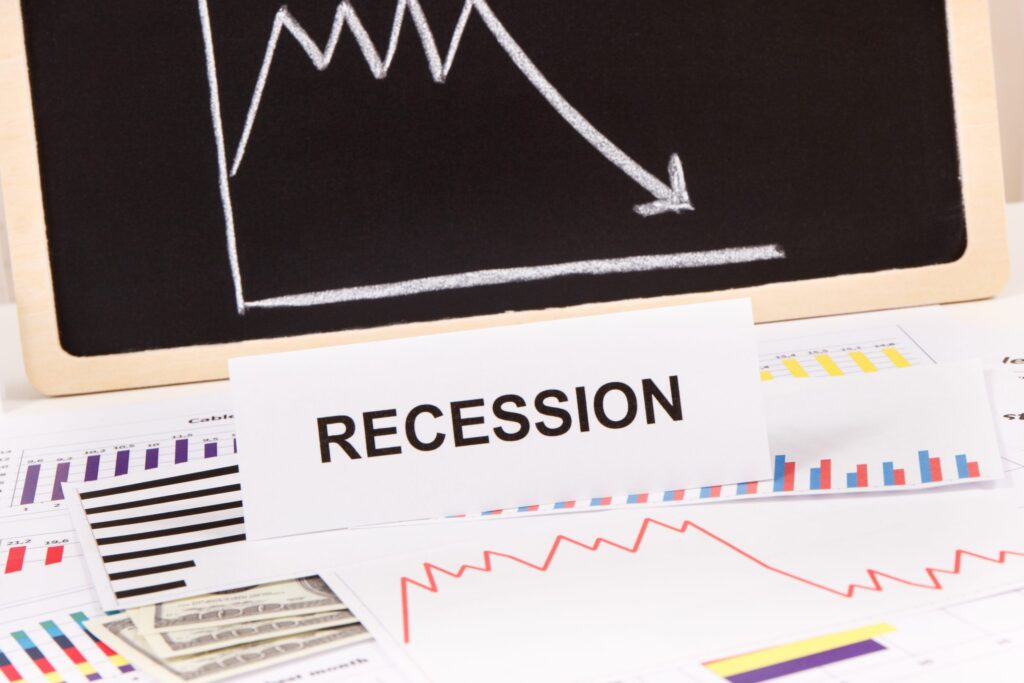Why business leaders shouldn’t waste a recession

In this exclusive guest article, Will Brookes, the CEO of Raconteur, explains why he believes a recession presents opportunities for business leaders.
As we teeter on the edge of what is predicted to be the deepest downturn since the 1970s, the words of former GE boss Jack Welch come to mind: “Never miss out on an opportunity like a good recession.”
I am a firm believer that B2B businesses are more recession-proof than B2C and that there will be opportunities in the 2022 version of the winter of discontent.
The best way to avoid recessionary troubles and reap the benefits is to lean into the planning and preparation as soon as possible, and fortunately, it’s not too late for this, especially when utilising a two-step process.
Step 1 – Protect and Support
A recession is the perfect time to nurture relationships with both existing customers and new sales opportunities. It’s also imperative to protect and support your team, especially your sales team. As the people on the ground talking to your customers, they are the key to unlocking consumer sentiment. Meet regularly with your sales leaders and ask what they are hearing, in real-time, from clients.
They are at the coalface of intel and you need to know what they know.
- Are your team facing new objections that they don’t face in normal times?
- Can they handle them effectively? And if not, how can they?
- Do you need to tweak your sales process and outreach?
- Do they need updated sales collateral which is more sensitive and relevant to the current economic environment?
- Can they offer more flexible contractual terms? Pricing? Payment terms?
In difficult times like these, approaching customers with empathy and listening to their conversations will clue you in on how to adjust your responses. Remember that your clients are facing the same hardships you are.
Now is the time to listen to your team and clients, and to reflect and then support. Those who don’t listen and just order their teams to produce miracles will not get the desired outcomes. Your sales team is your front line of recession defence, so treat them accordingly and don’t waste their expertise. You will be rewarded for it.
That being said, it’s not always enough to play defensive, sometimes you have to go on the offence.
Step 2 – Prosper
We know that businesses start to sweat at the mention of a recession. So, keep an eye on your competitors. When they begin to panic and cut back, there’s an opportunity for competitive advantage. There will be opportunities to ‘zig’ while others ‘zag’.
It’s well documented that marketing budgets can be at risk in turbulent times as increasingly concerned CFOs look for cost items to cut. But time and time again, research shows that maintaining or increasing media spend during turbulent times will pay off in the long run.
Data from global marketing analytics consultancy Analytic Partners shows that 60% of brands that increased their media investment during the 2008 and Covid recessions saw ROI improvements over that time. In fact, brands that increased paid advertising saw a 17% rise in incremental sales, whereas those who cut risked losing out on 15% of their business to competitors.
Some businesses are bound to make the cut, but those who hold their nerve will reap the benefits in greater share of voice. Not only this, but it shares a stronger, positive message to your clients, consumers and stakeholders. At the end of the day, if you cut marketing, you cut sales – the most important thing to protect in a recession.
Instead of cutting, try innovating. We know selling is hard in a recession, but so is buying. Decision-makers are under even more pressure to make good decisions and spend their money wisely, ultimately leading to higher levels of risk aversion and scrutiny in their spending.
We can expect the size of decision-making teams to increase, and we can also expect that more departments (and layers of seniority within them) will weigh in on spending decisions. In Raconteur’s recent decision-maker research, 53% of senior UK business leaders said that their spending decisions involved between 11 and 16 people.
Our research also found that most business departments have decision-making power over at least four different product/service offerings. While this was conducted prior to the recession, it’s still important to ask:
- If your marketing target is too narrow for the decision-making audience?
- Beyond your normal go-to target audience, are you considering key spend influencers like finance teams, operations teams, and procurement teams?
- Is your marketing messaging appropriate for a more complex and risk-averse buying committee?
Again, looking at research from Analytic Partners, their ROI genome report reveals that good creative drives 70% of ROI, so beware calls to homogenise or underinvest in quality creative.
At Raconteur, we strongly advise against trying to kill all birds with one stone and spend a lot of time helping our clients to understand their buying communities to produce marketing campaigns that will resonate with the complex range of stakeholders within them.
Let this be a wake-up call – a CFO doesn’t always care about the same things as a CTO, or a CMO does. So, producing one piece of content and hoping it’ll capture all is doomed to fail. Now is the time to apply and fine-tune your targeting, to protect your business.
This impending recession, while bleak, is rife with opportunities for business leaders to realign themselves. It’s a perfect time to nurture relationships with internal teams and existing customers, to innovate your marketing spend and spread empathy to your existing and new consumers, and stand out from competitors who may pull marketing spend.
It’s an opportunity to stand out from the crowd – don’t waste it.

